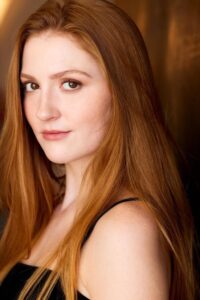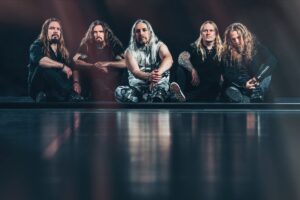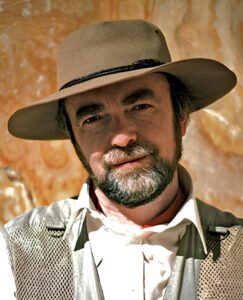Bernardo Lanzetti – Prog Talks And Acqua Fragile Rocks
6 min read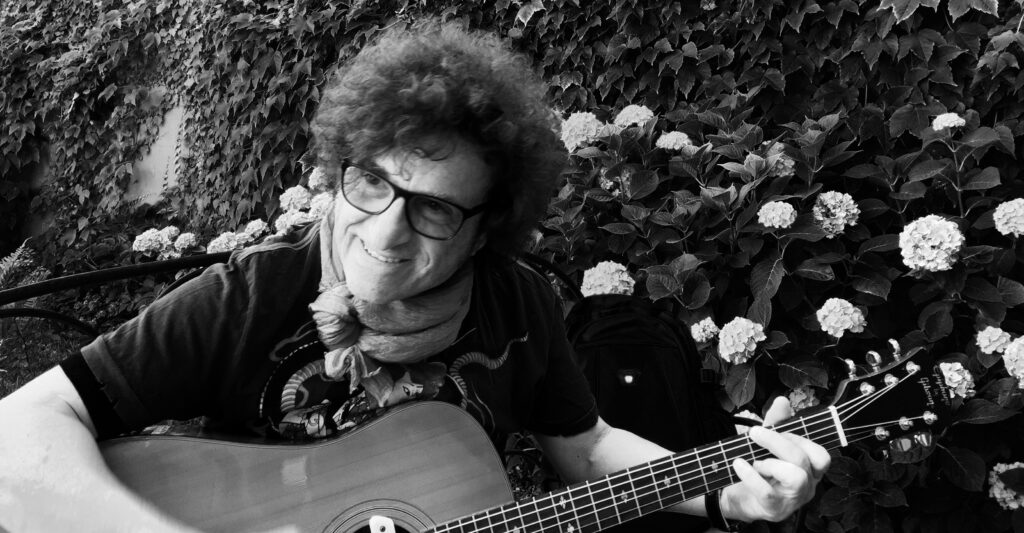
1. Congratulations on the release of “Moving Fragments,” the new album from Acqua Fragile. After fifty years since the first album in 1973, how does it feel to come together again and create a brand new work with original songs?
After completing their third album “A New ChanT”, the three original members planned to come out with a new line up to achieve a fourth one. Perhaps the biggest motivation, was to celebrate the Band and Bernardo Lanzetti’s Jubilee, 50 years after the first album “Acqua Fragile”.
It was not so easy after more sudden changes – the new guitarist left to be replaced – plus all the lockdowns, but technology and perseverance were always supporting us.
2. “Moving Fragments” showcases the evolution of Acqua Fragile’s style while maintaining its salient characteristics. Can you tell us about the new features and significant developments that embellish this album?
As usual, in Prog, you cannot do much planning abut what you will actually come out with. Total freedom with respect for the past should rule. Let’s say we worked a bit on the shorter format. This in order to make future live performances richer and smoother referring to the the song list. When you have tracks that last quite long you are forced to take out several others so that you end up delivering less in repertoire and emotions…
Another main feature was experimenting Italian language for three songs. I focused not only on the different themes but also on the actual sound of the words.
3. The album includes three original members of Acqua Fragile and new additions, such as Stefano Pantaleoni, Claudio Tuma, and vocalist Rossella Volta. How did this collaboration impact the creative process, and what unique contributions did each member bring to the album?
As in the past, I was delivering most of the composition but this time, key man Stefano, was also asked to join in for a couple of track. As a classical composer, he would present harmonies and musical environments while I would work out vocal lines. Piero was acting like a sort of “critical consciousness”. Franz was our biggest supporter and Ross was the new color in vocals, still perfectly blending with the other voices. Claudio was the rascal who first would dismantle each frase later to rebuild it …
4. With five songs in English, one instrumental, and three in Italian, how do the language choices contribute to the overall storytelling and atmosphere of the album?
Though singing in English, when writing lyrics for Acqua Fragile, I always made sure to sneak in some Italian words that could be accepted by foreign audiences. Acqua Fragile itself is a two word statement in Italian. Mass Media Stars, comes from Latin, no less. The opening track of the third album A New Chant is “My Forte”, so Italian again.
In Moving Fragments you get “Malo Bravo”, a combination of Spanish and Italian.
History and Physics tell that every time some forces pull out to separate, other forces will push back in to reunite. Music is a unique witness to all this happening.
Now, regarding language and music, let me state what follows.
Thinking about genres like Flamenco or Opera, for example, would you expect artists to write and perform Flamenco in a language different from Andalusian-Spanish? Would composers and performers want a language different from Italian when getting into melodrama?
We all know that even Austrian Amadeus Mozart wanted his masterpiece opera “Don Giovanni” to be in Italian!
Acqua Fragile is an historical Prog unit though I confess the band did plan to have some tracks in Italian on their fourth album also to show that we could do it.
5. Stef Burns is featured on “White Horse On Dope,” bringing a “Hard Rock in odd time” element to the album. How did this collaboration come about, and what was the creative process like working with Stef Burns on this track?
Stef is very well known in Italy for playing guitar for huge Italian star Vasco Rossi. I’ve never been to one of his concert but I got to attend a gig where Mr. Burns was performing with his band, just a trio.
I was captured by his electric sound and when he got into some sort of dissonant blues I got pleasantly lost. Turned around to have a look at the audience but most of them were just up leaving…
“White Horse On Dope” is a tricky track. Odd time signatures with extra beats here and there. I wanted it to sound “easy” to the listener so Stef had to put in extra effort. It was fun to have him onboard.
6. “Black Drone” features David Jackson, known for his work with Van Der Graaf Generator. Can you share more about the collaboration with David Jackson and the unique contribution of sax and flute to the song?
I’ve been working previously with David, both on stage and in studio. I was so pleased when recently he worked out an instrumental version of one of my song. It should come out soon on an album also featuring dutch percussionist Renè van Commenè.
I sent all the arrangement parts of “Black Drone” to Mr. Jackson asking him to choose which lines to perform. Well, he played them all!
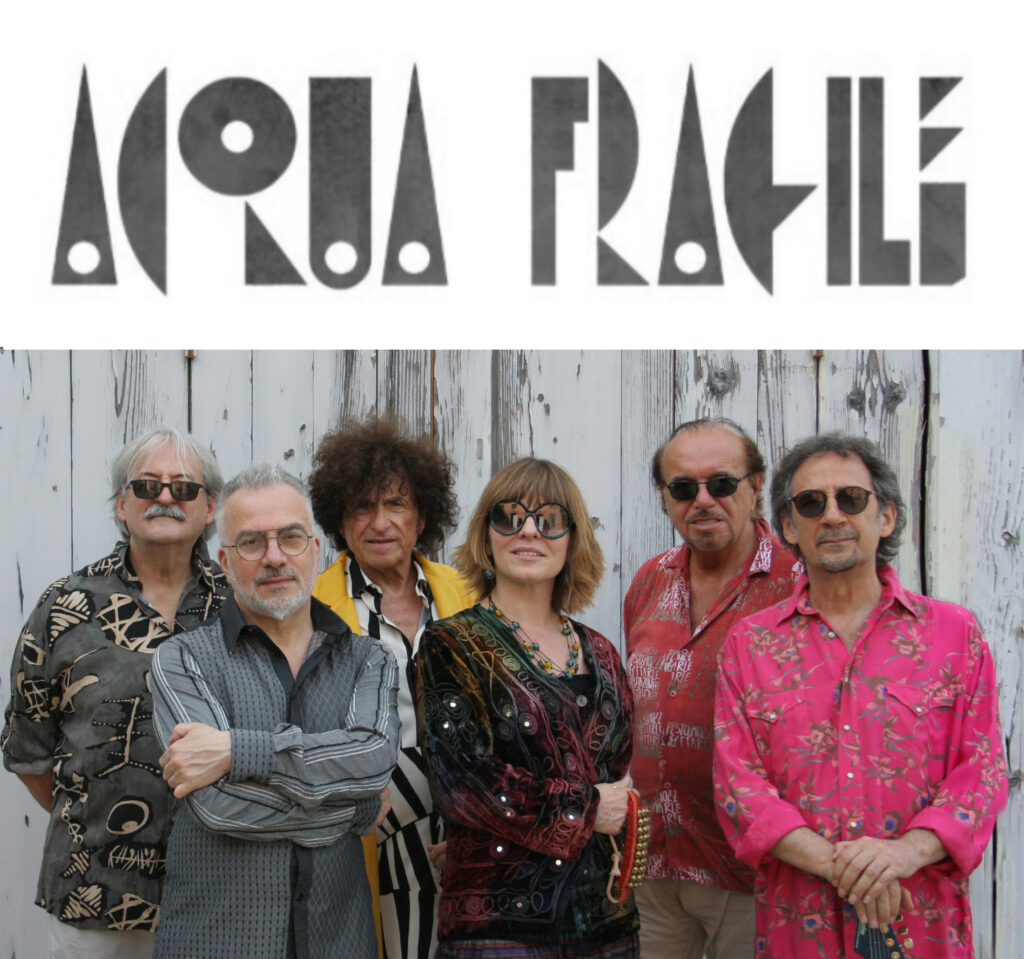
7. “IA Intelligenza Artificiale” addresses the theme of artificial intelligence and features vocalist Rossella with two solo parts. Given that the song was written three years ago, how do you perceive its relevance in today’s context, considering the growing impact of AI in our daily lives?
I was not expecting AI to develop so fast and conceived to be fed through the work of some million users. It should be fascinating but I don’t trust all the way the human brains being behind it.
8. The album’s production is entrusted to Dario Mazzoli, who collaborated with you on your previous solo album. How does the partnership with Dario contribute to capturing the essence of Acqua Fragile’s sound in the studio?
We should face the fact that human hearing changes, not for better, when getting senior. More ears are needed to find the best sound balance in a new recording. Dario is a musician and a studio man but also very open to innovations and experiments. We were having a big argument on the title track “Moving Fragments”. He had objections on a couple of guitar chords while I was sure they were perfect in the picture.
At that time, when great sax player Wayne Shorter passed away, I read a reported dialogue of his with Joni Mitchell, during the making of an album by the singer-songwriter. “Hey, Joni! What’s happening here? What notes do you play on the guitar? That’s not a chord!”.
“Yes of course” replied Mrs Mitchell, “it doesn’t have to be a chord. It’s a… suspension…”
So I told Dario about my own “suspensions” and he got everything in focus.
9. The guest musicians on the album have a strong affiliation with the Progressive Rock genre. How do their experiences and expertise enhance the overall sonic landscape of “Moving Fragments”?
All guest musicians on the album were pleased to join in. I found their performances smooth and in the right direction. I’m ready to act the same way should anyone of them call me on their own project.
10. Looking ahead, with the release of “Moving Fragments” and the upcoming European tour, what are your hopes and expectations for the reception of the album, and how do you envision the future of Acqua Fragile in the contemporary progressive music scene?
I might be wrong but it looks like we are facing the Twilight of Progressive Rock.
For more information:http://bernardolanzetti.blogspot.com/
https://www.facebook.com/BernardoLanzetti
